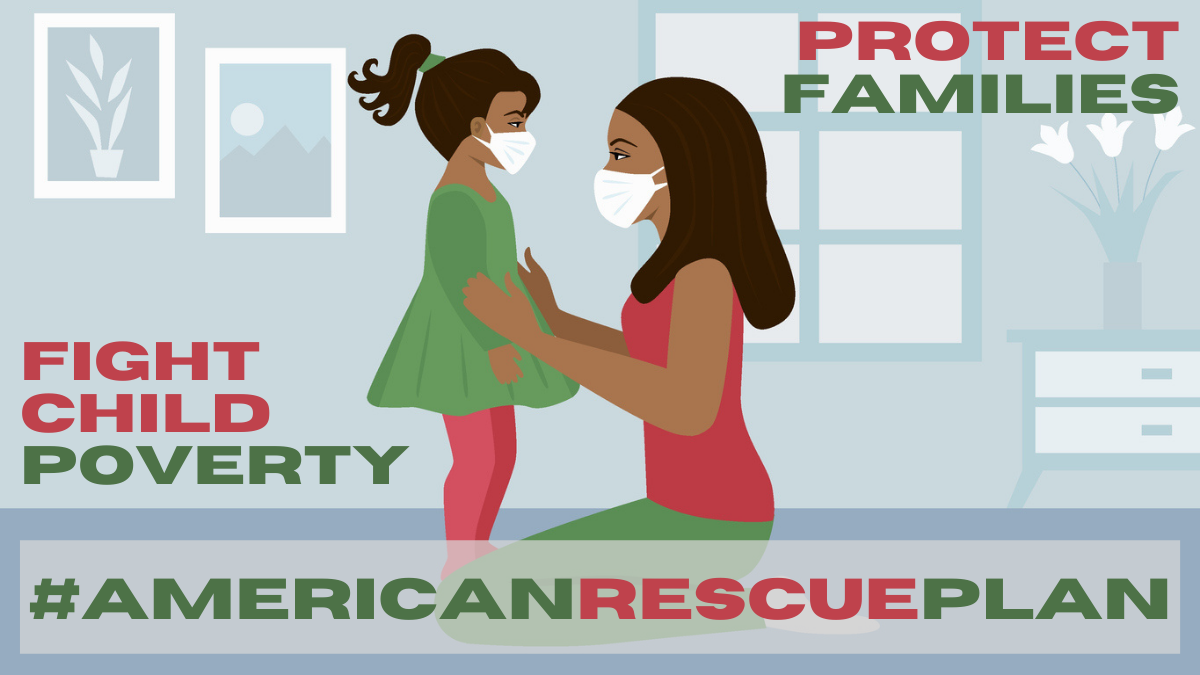
Why – more than ever – we need a ‘Marshall Plan for Moms’
Here is a labor statistic that might strike you as rather odd if not incredible: 45 million women in the U.S. report to work every day and night and receive no pay.
That’s the number of moms raising kids in the U.S. Although many of course work outside the home (and yes, get paid for it!) a growing number have been grounded by the pandemic as the ranks of women in the U.S. labor force increasingly face evisceration.
The numbers tell part of the story. Between February and April of last year, women lost 12.1 million jobs, reversing an entire decade of job gains since the end of the Great Recession. Women of color have been particularly hard hit, with Black and Latinx women facing historically high unemployment rates since the pandemic began.
Some of those 12.1 million jobs have come back. Many haven’t. Two million women have left the labor force since the pandemic began. Even when jobs returned, women did not necessarily re-enter the workforce. In September, traditionally back-to-school month, four times as many women as men left the labor force. In December, women lost 192,000 jobs over the previous month while men gained 214,000 jobs. Just last month, another 275,000 women left the labor force, according to the National Women’s Law Center.

Two million women have left the labor force since the pandemic began. Even when jobs returned, women did not re-enter the workforce.
By now, the two main reasons behind these statistics have been well documented. First, we have a child care crisis in our country. Not only have tens of thousands of child care worker positions been lost, but the coronavirus pandemic has forced new, stricter adult-to-child ratios on the child care centers that have managed, against odds, to remain open. That has made child care more scarce and more expensive.
Second, much job loss has occurred in industries that more often than not employ women – think hospitality (restaurants, hotel, travel), retail, education, and health care.
“The COVID-19 crisis has laid bare the disastrous consequence of longstanding racial and gender inequities in our economy,” writes the National Women’s Law Center. “Women — and Black women and Latinas in particular – are overrepresented among the front-line workers who are risking their lives to provide health care, child care, and other essential services. Women are also far more likely than men to work in part-time, low-paid, and tipped jobs, meaning women were often struggling to make ends meet before this crisis ever hit – and faced with a higher risk of losing their jobs as retail stores, restaurants, and other service sector businesses were forced to lay off workers or close their doors entirely.”
Or, as the Brookings Institute puts it, “COVID-19 is hard on women because the U.S. economy is hard on women, and this virus excels at taking existing tensions and ratcheting them up.”
All of which leads us back to those millions of moms who aren’t getting paid for the work it takes to raise their children.
In late January, a group of 50 women — mostly executives and celebrities and led by Reshma Saujani, founder and CEO of Girls Who Code – took out a full-page ad in the New York Times. The women called for a “Marshall Plan for Moms” — a 360-degree approach that would address the plight of mothers by providing short-term, means-tested, monthly $2,400 payments to moms raising kids as well as long-term solutions such as affordable child care, pay equity and workplace policies such as parental leave.
“This pandemic has absolutely decimated the careers of working moms across the country,” stated a letter written by the women, which was included in the full-page ad. “This is not an isolated incident – it is a national crisis, and we can start to address it within the first 100 days of this Administration.”
The letter continues:
“Sound crazy? It’s not. It’s time to put a dollar figure on our labor. Motherhood isn’t a favor and it’s not a luxury. It’s a job. The first 100 days are an opportunity to define our values. So let’s start by valuing moms.”
In an interview with Axios, Saujani expressed the frustration of moms from every walk of life, frustration that has only been exacerbated by the pandemic as working moms try to balance Zoom calls with online schooling and child care duties.
“When schools closed, we became teachers, nannies, tech support, cooks. Everything,” Saujani said. “All while working full-time jobs. Too many of us have had to leave our jobs completely. It’s a national crisis that needs a federal solution. We need a Marshall Plan for Moms – to give out means-tested payments, and stop treating them like America’s social safety net. It’s holding us back, and honestly it’s holding this country back.”

The #AmericanRescuePlan is really a Marshall Plan for Moms, and many others.
To be sure, President Biden’s proposed $1.9 trillion American Rescue Plan contains much that would help moms. The short list: $1,400 stimulus payments for qualified recipients, enhanced unemployment aid, help for the hungry, rental assistance, more health coverage, aid for state and local governments (including schools), more money for child care and child care tax credits, incentives for employers to provide emergency paid leave, and, perhaps most notably, temporary increases in the Child Tax Credit and Earned Income Tax Credit.
Given the massive dislocations caused by the pandemic, it is painfully clear we have to build in a set of family supports, such as child care, paid leave, and income supplements to ensure economic security, and that those supports need to be responsive to economic fluctuations.
Some closing thoughts from Saujani:
“Women’s labor – specifically the labor of our mothers – has always been undervalued in the United States. But in the last year, we’ve confirmed that, in the eyes of policy makers, their labor has no economic value whatsoever – that it’s worth exactly zero dollars.
“To be clear, a Marshall Plan for Moms will not solve the deeply rooted norms that make women our default caregivers in the first place. The battle against those norms – against our hugely damaging structural inequities – doesn’t end with a monthly stipend from the federal government. What might end, or at least begin to abate, is the gross disregard for the value of mothers’ unpaid, unseen, unappreciated labor.
“A Marshall Plan for Moms will stimulate the economy. It will give the women the support they need so they can – eventually – get back to work. And it will send a hugely important signal to little girls and young women across the country: that our society values the contributions of women, and that their careers, dreams, and lives will not be taken for granted.”
And maybe, just maybe, those 45 million moms might one day get a raise.

